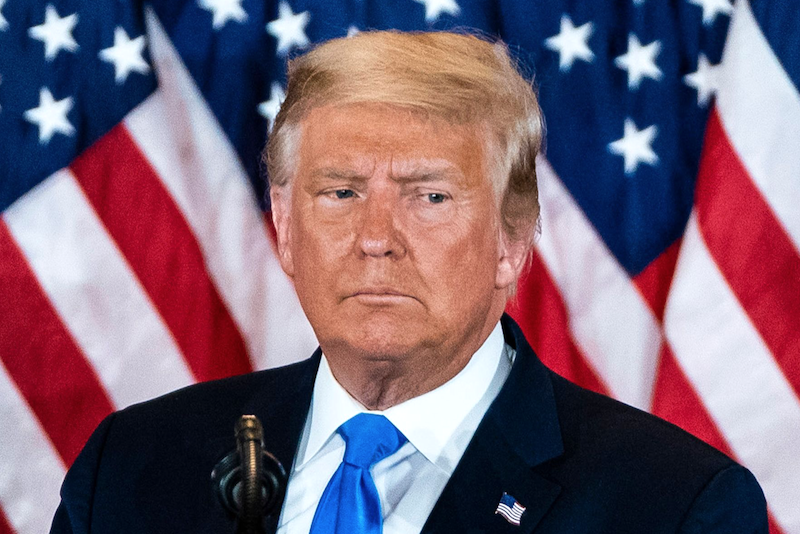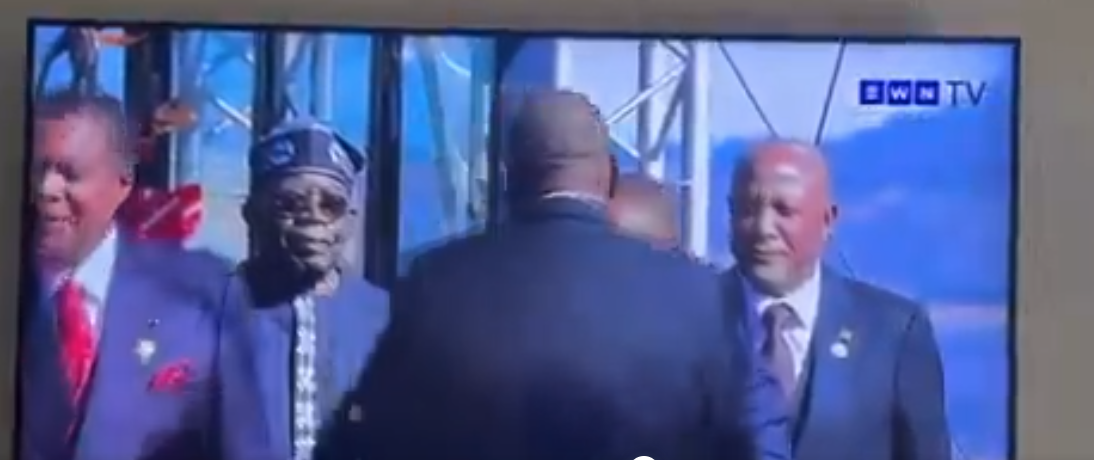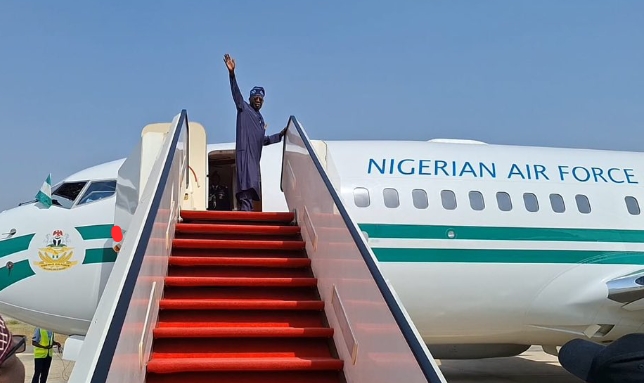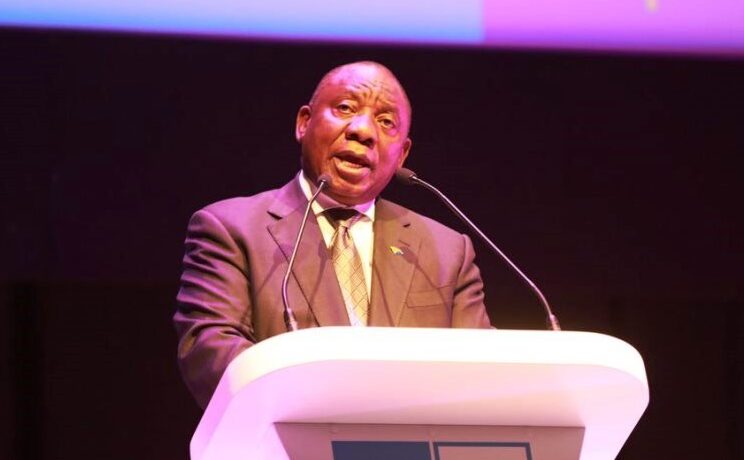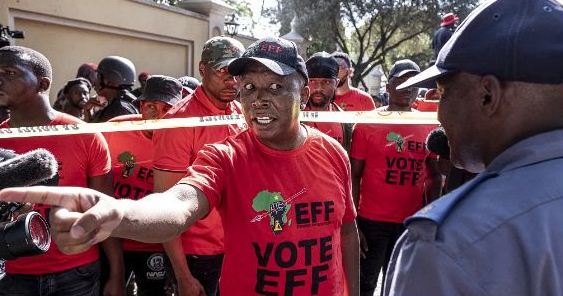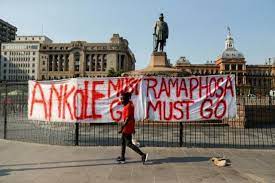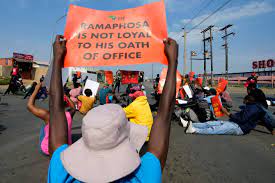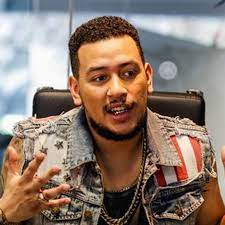BILLIONS of the faithful believe that in the beginning, when God created the world, darkness was upon the face of the earth until the Almighty said: “Let there be light,” and there was light. Since then, humanity has worked to bring more light into the world, with electricity being the most ambitious.
Since 1821, when English scientist, Michael Faraday invented the electric motor and followed it up ten years later with electricity, vast sections of humanity have come to take the availability of electricity for granted.
However, in Africa, large parts are without electricity, and even chunks that do, have to endure power blackouts. In the last few weeks, three African leaders have had to directly address these issues, but in different ways. The method of Mozambican President Felipe Jacinto Nyusi is to be proactive, that of South Africa’s Cyril Ramaphosa is virtually to declare an emergency; and that of President Muhammadu Buhari of Nigeria, with an average 15-hour daily power cut, is to relax and produce a magic wand.
In the last few months, Mozambique has moved full swing toward electrifying the country. Its priorities are areas housing the most vulnerable, internally displaced persons, IDPs, and refugees, mainly from the Democratic Republic of the Congo. It is a country that has been subjected to wars since it began a liberation struggle in 1964 against Portuguese colonialism. It has also had to engage in a civil war against the Western-backed RENAMO rebels, the Apartheid South African military, and within the last two years against rampaging terrorists led by the Islamic State, ISIS, which is seeking to establish a foothold in Southern Africa.
Despite this, the country has taken electrification with all the seriousness it deserves. Its electrification rate of a mere five per cent in 2001 increased to 29 per cent within 18 years. In 2020, it moved from 34 per cent to 44 per cent in 2022. Despite being categorised as one of the poorest countries in the world and the seventh poorest in Africa, its leaders want to provide every Mozambican with electricity by 2030. In giving priority to the IDPs, it hopes to make their lives and those of their host communities, more liveable. Equally, it seeks to ensure that the poorest Mozambicans are not left behind. The Mozambican leaders also demonstrate the common sense that the country’s development will depend on the availability, accessibility and affordability of electricity for all.
In South Africa, where the people regard the availability of electricity as a human right in a technologically driven world, and, power cuts as a denial of rights, President Cyril Ramaphosa had to cancel his trip to the 2023 World Economic Forum in Davos to tackle the problem. To him, the power cuts and a demand by labour, civil society and business leaders that his government take verifiable steps to tackle the problem are like declaring a state of emergency.
The organisations had written a letter of demand that Andre de Ruyter, the Chief Executive Officer of the electricity company Eskom Holdings, and, Public Enterprises Minister Pravin Gordhan, either end the power cuts, or come up with a timetable to do so. They have also demanded the reversal of an almost 19 per cent tariff increase. They gave a deadline of Friday, January 20, 2023, threatening that if their demands were not met, they would be in court three days later to seek relief for the damages caused by the power cuts. The threat was issued by the United Democratic Movement, Build One South Africa, the Inkatha Freedom Party, and the National Union of Metalworkers.
The power cuts, they argued, are leading to a radical economic decline and have negatively affected all aspects of life, including education, healthcare and businesses. For these, they demand: “That the state commit to compensating everyone who has suffered quantifiable financial losses because of load shedding.” More pressure was piled on the government when the main opposition party, the Democratic Alliance, also threatened to ask the courts to declare the cuts and the government’s response, as being inconsistent with the constitution and therefore invalid.
The Davos Summit from January 16, which was held under the shadow of the Russo-Ukrainian War, had the theme: “Cooperation in a fragmented world.” It seemed crucial for President Ramaphosa to be there as a leader of the BRICS countries pushing for a new economic order.
With internal divisions looming, he chose to meet with protesting organisations on Monday to work out an amicable solution. Ramaphosa’s spokesman, Vincent Magwenya, reported that “business and labour came forward with ideas, concerns, and an overwhelming desire to work closely with government in finding solutions to the current energy crisis”. The government promised to add 9,000 megawatts of electricity this year, and also import more electricity to ease the power cuts. Also, Eskom promised to end the energy crisis by raising its generating capacity to 65 per cent in 2024 and 70 per cent the following year.
In contrast to South Africa, Big Brother Nigeria does not seem perturbed, and its businesses, civil society organisations, and labour unions are not uniting to demand better services. The issue of prolonged power cuts, which has become a sort of culture, is not even on the front burner as the country trudges towards presidential elections on February 25, 2023. President Buhari, who vowed to solve the country’s power problems within his first term in office, has merely watched the situation degenerate further while consumers are forced to pay an ever-increasing tariff.
On October 17, 2022, a national newspaper reported that the national grid had collapsed 98 times under Buhari! When he came to power in 2015, electricity distribution was about 4,100 MW; after seven and a half years of his presidency, distribution is under 4,000 MW. Mr. Sunday Oduntan, the Executive Director, Research and Advocacy, of the Association of Nigerian Electricity Distributors, ANED, whose members are the sole distributors of electricity in the country, said: “Since 1960, the country has not generated up to 6,000 MW of electricity…”
But, with less than six months left in his presidency, President Buhari, clearly waving a magic wand, told Nigerians in December 2022 that what he had been unable to accomplish in the previous 90 months as President, he would accomplish before leaving office. The Minister of Power, Abubakar Aliyu, speaking at the Aso Rock Presidential Palace, declared: “We will leave an installed capacity of almost 22,000 megawatts.”
The Buhari administration acts like a bed-wetting drunk, constantly making loud, laughable promises that no rational person would take seriously, but it assumes those it addresses are fools. While I see Presidents Nyusi and Ramaphosa striving to further illuminate their countries, I do not see that drive in President Buhari.
